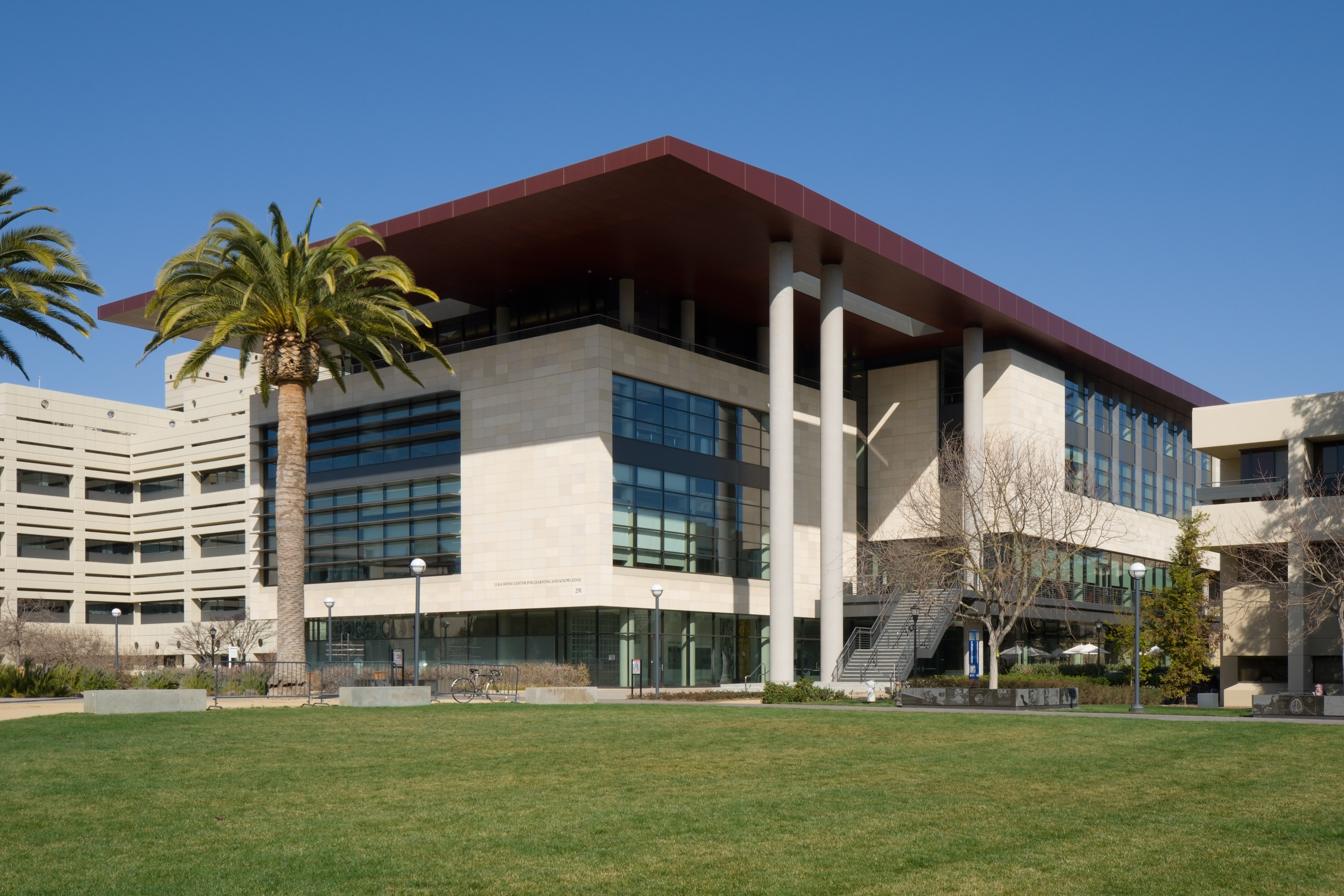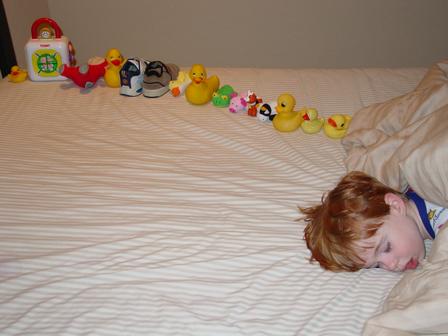|
Robert Koegel
Robert Koegel is a Senior Research Scientist at Stanford University School of Medicine. He was formerly a Distinguished Professor and the Director of the Koegel Autism Center at the University of California, Santa Barbara. He moved to Stanford in 2017. His career is focused in the area of autism, specializing in language intervention, family support, and school integration. He has published over two hundred articles and papers relating to the treatment of autism, and is presently editing several books on the treatment of autism and positive behavioral support. He is the Founding Editor of the '' Journal of Positive Behavior Interventions''. Models of his procedures are used in public schools and in parent education programs throughout the United States, and other countries. He has trained many health care and special education leaders in the United States and abroad. Robert and Lynn Koegel are the developers of Pivotal Response Treatment, an empirically supported treatment for auti ... [...More Info...] [...Related Items...] OR: [Wikipedia] [Google] [Baidu] |
Stanford University School Of Medicine
Stanford University School of Medicine is the medical school of Stanford University and is located in Stanford, California. It traces its roots to the Medical Department of the University of the Pacific, founded in San Francisco in 1858. This medical institution, then called Cooper Medical College, was acquired by Stanford in 1908. The medical school moved to the Stanford campus near Palo Alto, California, in 1959. The School of Medicine, along with Stanford Health Care and Lucile Packard Children's Hospital, is part of Stanford Medicine. Stanford Health Care was ranked the fourth best hospital in California (behind UCLA Medical Center, Cedars-Sinai Medical Center, and UCSF Medical Center, respectively). History In 1855, Illinois physician Elias Samuel Cooper moved to San Francisco in the wake of the California Gold Rush. In cooperation with the University of the Pacific (also known as California Wesleyan College), Cooper established the Medical Department of the Univers ... [...More Info...] [...Related Items...] OR: [Wikipedia] [Google] [Baidu] |
University Of California, Santa Barbara
The University of California, Santa Barbara (UC Santa Barbara or UCSB) is a Public university, public Land-grant university, land-grant research university in Santa Barbara County, California, Santa Barbara, California with 23,196 undergraduates and 2,983 graduate students enrolled in 2021–2022. It is part of the University of California 10-university system. Tracing its roots back to 1891 as an independent teachers' college, UCSB joined the University of California system in 1944, and is the third-oldest undergraduate campus in the system, after University of California, Berkeley, UC Berkeley and University of California, Los Angeles, UCLA. Located on a WWII-era Marine air station, UC Santa Barbara is organized into three undergraduate colleges (UCSB College of Letters and Science, College of Letters and Science, UCSB College of Engineering, College of Engineering, College of Creative Studies) and two graduate schools (Gevirtz Graduate School of Education and Bren School of E ... [...More Info...] [...Related Items...] OR: [Wikipedia] [Google] [Baidu] |
Autism
The autism spectrum, often referred to as just autism or in the context of a professional diagnosis autism spectrum disorder (ASD) or autism spectrum condition (ASC), is a neurodevelopmental condition (or conditions) characterized by difficulties in social interaction, verbal and nonverbal communication, and the presence of repetitive behavior and restricted interests. Other common signs include unusual responses to sensory stimuli. Autism is generally understood as a ''spectrum disorder'', which means that it can manifest differently in each person: any given autistic individual is likely to show some, but not all, of the characteristics associated with it, and the person may exhibit them to varying degrees. Some autistic people remain nonspeaking over the course of their lifespan, while others have relatively unimpaired spoken language. There is large variation in the level of support people require, and the same person may present differently at varying times. Historically ... [...More Info...] [...Related Items...] OR: [Wikipedia] [Google] [Baidu] |
Journal Of Positive Behavior Interventions
''Journal of Positive Behavior Interventions'' is a peer-reviewed academic journal that publishes papers in the field of Education. The journal's editors are Lee Kern (Lehigh University) and Kathleen Lane (University of Kansas). It has been in publication since 1999 and is currently published by SAGE Publications in association with The Hammill Institute on Disabilities. Scope ''Journal of Positive Behavioral Interventions'' focuses on research-based principles of positive behavior support for use in school, home and community settings for people with challenges in behavioral adaptation. The journal publishes articles of empirical research, discussion and literature reviews and also provides a forum for the debate and discussion of research and findings. Abstracting and indexing ''Journal of Positive Behavioral Interventions'' is abstracted and indexed in, among other databases: SCOPUS, PsycINFO, and the Social Sciences Citation Index. According to the ''Journal Citation Rep ... [...More Info...] [...Related Items...] OR: [Wikipedia] [Google] [Baidu] |
Pivotal Response Treatment
Pivotal response treatment (PRT), also referred to as pivotal response training, is a naturalistic form of applied behavior analysis used as an early intervention for children with autism that was pioneered by Robert and Lynn Koegel. PRT advocates contend that behavior hinges on "pivotal" behavioral skills—motivation and the ability to respond to multiple cues—and that development of these skills will result in collateral behavioral improvements. In 2005, Richard Simpson of the University of Kansas identified pivotal response treatment as one of the four scientifically based treatments for autism. History Initial attempts to treat autism were mostly unsuccessful and in the 1960s researchers began to focus on behavioral intervention therapies. Though these interventions enjoyed a degree of success, limitations included long hours needed for thousands of trials and limited generalization to new environments. Drs. Lynn and Robert Koegel incorporated ideas from the natural languag ... [...More Info...] [...Related Items...] OR: [Wikipedia] [Google] [Baidu] |
Applied Behavior Analysis
Applied behavior analysis (ABA), also called behavioral engineering, is a psychological intervention that applies empirical approaches based upon the principles of respondent and operant conditioning to change behavior of social significance.See also footnote number "(1)" of nd the whole "What is ABA?" section of Where the same definition is given, (or quoted), and it credits (or mentions) both the source "Baer, Wolf & Risley, 1968" (Drs. Donald Baer, PhD, Montrose Wolf, PHD and Todd R. Risley, PhD, (Professor Emeritus of Psychology at the University of Alaska) were psychologists who developed science of applied behavior analysis) and ianother source, called "Sulzer-Azaroff & Mayer, 1991". Beth Sulzer-Azaroff is a psychologist at University of Massachusetts Amherst, Department of Psychology It is the applied form of behavior analysis; the other two forms are radical behaviorism (or the philosophy of the science) and the experimental analysis of behavior (or basic experime ... [...More Info...] [...Related Items...] OR: [Wikipedia] [Google] [Baidu] |
Children’s Television Workshop
Sesame Workshop (SW), originally known as the Children's Television Workshop (CTW), is an American nonprofit organization that has been responsible for the production of several educational children's programs—including its first and best-known, ''Sesame Street''—that have been televised internationally. Television producer Joan Ganz Cooney and foundation executive Lloyd Morrisett developed the idea to form an organization to produce ''Sesame Street'', a television series which would help children, especially those from low-income families, prepare for school. They spent two years, from 1966 to 1968, researching, developing, and raising money for the new series. Cooney was named as the Workshop's first executive director, which was termed "one of the most important television developments of the decade." ''Sesame Street'' premiered on National Educational Television (NET) as a series run in the United States on November 10, 1969, and moved to NET's successor, the Public Broa ... [...More Info...] [...Related Items...] OR: [Wikipedia] [Google] [Baidu] |
Living People
Related categories * :Year of birth missing (living people) / :Year of birth unknown * :Date of birth missing (living people) / :Date of birth unknown * :Place of birth missing (living people) / :Place of birth unknown * :Year of death missing / :Year of death unknown * :Date of death missing / :Date of death unknown * :Place of death missing / :Place of death unknown * :Missing middle or first names See also * :Dead people * :Template:L, which generates this category or death years, and birth year and sort keys. : {{DEFAULTSORT:Living people 21st-century people People by status ... [...More Info...] [...Related Items...] OR: [Wikipedia] [Google] [Baidu] |
American Science Writers
American(s) may refer to: * American, something of, from, or related to the United States of America, commonly known as the "United States" or "America" ** Americans, citizens and nationals of the United States of America ** American ancestry, people who self-identify their ancestry as "American" ** American English, the set of varieties of the English language native to the United States ** Native Americans in the United States, indigenous peoples of the United States * American, something of, from, or related to the Americas, also known as "America" ** Indigenous peoples of the Americas * American (word), for analysis and history of the meanings in various contexts Organizations * American Airlines, U.S.-based airline headquartered in Fort Worth, Texas * American Athletic Conference, an American college athletic conference * American Recordings (record label), a record label previously known as Def American * American University, in Washington, D.C. Sports teams Soccer * B ... [...More Info...] [...Related Items...] OR: [Wikipedia] [Google] [Baidu] |
21st-century American Psychologists
The 1st century was the century spanning AD 1 ( I) through AD 100 ( C) according to the Julian calendar. It is often written as the or to distinguish it from the 1st century BC (or BCE) which preceded it. The 1st century is considered part of the Classical era, epoch, or historical period. The 1st century also saw the appearance of Christianity. During this period, Europe, North Africa and the Near East fell under increasing domination by the Roman Empire, which continued expanding, most notably conquering Britain under the emperor Claudius (AD 43). The reforms introduced by Augustus during his long reign stabilized the empire after the turmoil of the previous century's civil wars. Later in the century the Julio-Claudian dynasty, which had been founded by Augustus, came to an end with the suicide of Nero in AD 68. There followed the famous Year of Four Emperors, a brief period of civil war and instability, which was finally brought to an end by Vespasian, ninth Roman emperor, ... [...More Info...] [...Related Items...] OR: [Wikipedia] [Google] [Baidu] |
University Of California, Santa Barbara Faculty
A university () is an institution of higher (or tertiary) education and research which awards academic degrees in several academic disciplines. Universities typically offer both undergraduate and postgraduate programs. In the United States, the designation is reserved for colleges that have a graduate school. The word ''university'' is derived from the Latin ''universitas magistrorum et scholarium'', which roughly means "community of teachers and scholars". The first universities were created in Europe by Catholic Church monks. The University of Bologna (''Università di Bologna''), founded in 1088, is the first university in the sense of: *Being a high degree-awarding institute. *Having independence from the ecclesiastic schools, although conducted by both clergy and non-clergy. *Using the word ''universitas'' (which was coined at its foundation). *Issuing secular and non-secular degrees: grammar, rhetoric, logic, theology, canon law, notarial law.Hunt Janin: "The university i ... [...More Info...] [...Related Items...] OR: [Wikipedia] [Google] [Baidu] |



